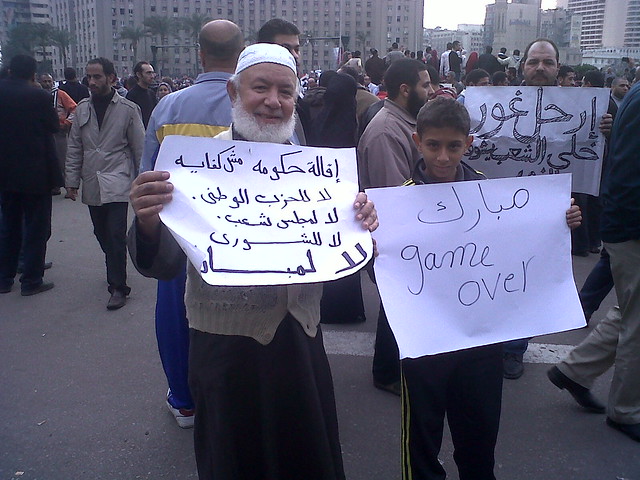
A revolution in Egypt, coordinated through the Internet, succeeded in ousting President Hosni Mubarak. (Photo courtesy of Flickr.)
By Ralph De La Cruz
Florida Center for Investigative Reporting
Truly amazing.
The Twitter and Facebook revolution in Egypt has succeeded.
Hosni Mubarak resigned after 30 years of iron-grip governance in Egypt.
It was the Middle East version of the collapse of the Berlin Wall.
For many in South Florida watching the remarkable scenes, it must have again raised The Question. The same one that pops up after every overthrow of oppression:
When, if ever, will we see similar scenes in Havana?
Perhaps when we give in to engagement and technology. Because those are the forces that brought about this revolution, not isolation and threats, which have been our strategies for Cuba.
Fidel and Raul Castro have always understood that. And the U.S. government and Cuban exile politicians never have.
Unlike Egypt’s government, Cuba’s communist totalitarian government has maintained tight control over the Internet. The Castro brothers understand that communication is key to freedom.
And for half a century, the U.S. government policy of isolating the island has played into their hands.
Engagement and technology. Interaction between people. Those are the things that work. Isolation doesn’t.
Perhaps the United States and Castro opponents such as Luis Posada Carriles should have focused less on exploding cigars and blowing up airliners and hotel lobbies and more on beaming WiFi to the island and finding a way to get Internet access to Cubans.
Congratulations to the people of Egypt.
And on to Cuba …
